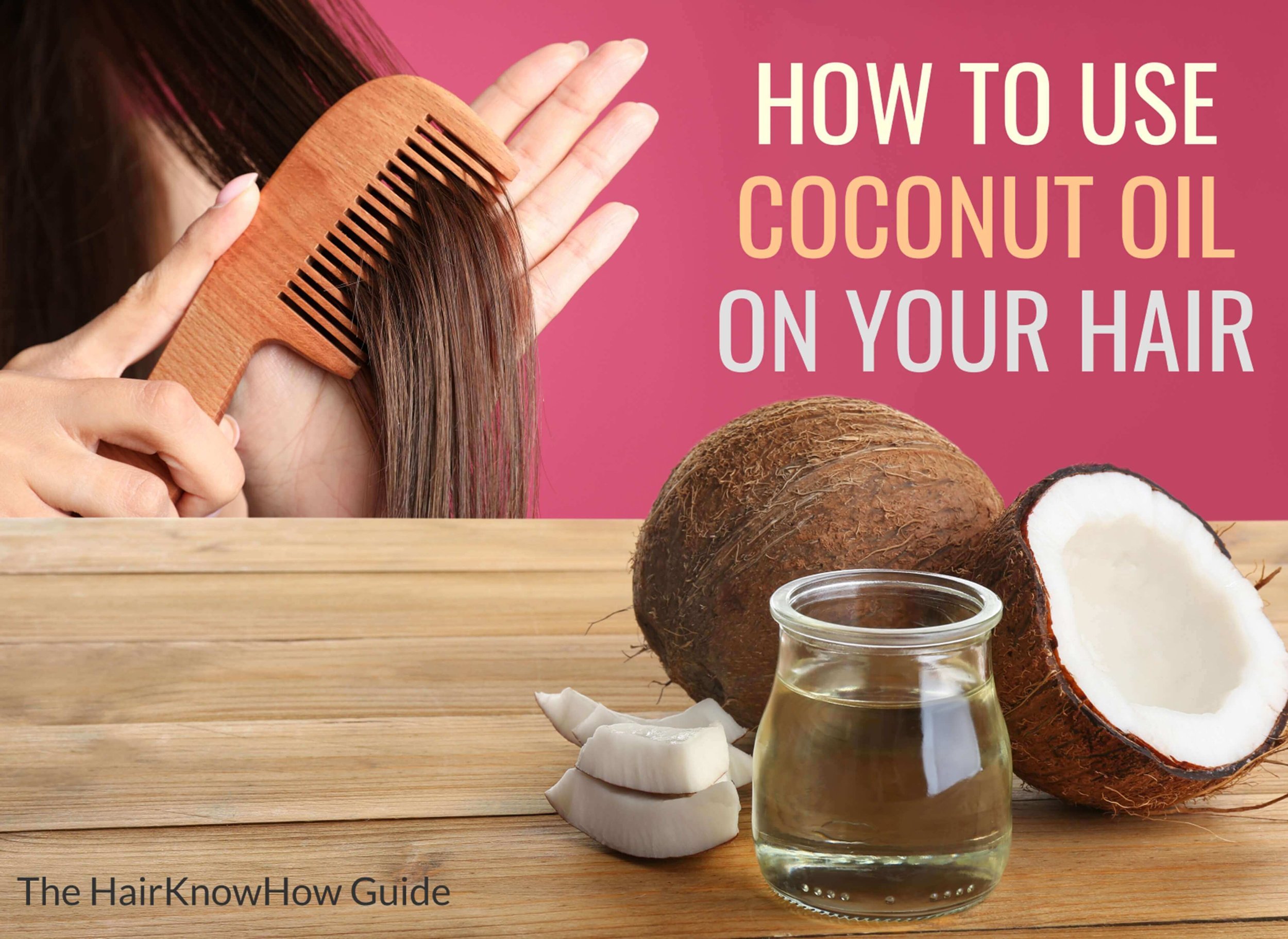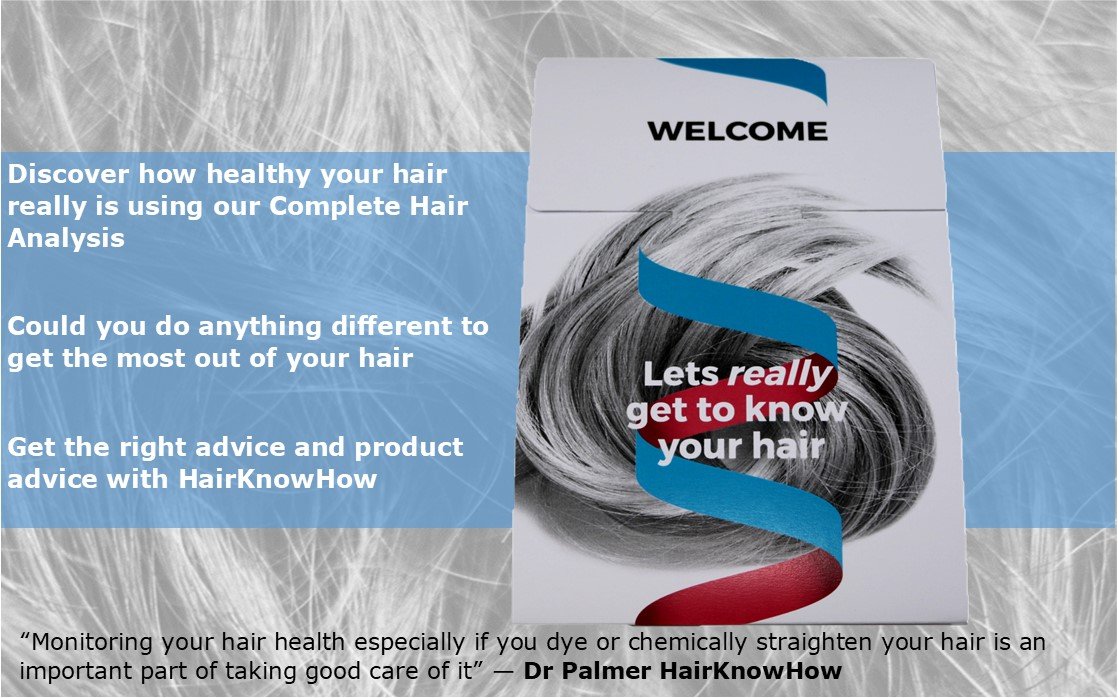Updated January 2023 By Dr Jonathan Palmer
Coconut Oil For Hair -Everything you need to know
Why use oils on your hair?
Many oils have been shown scientifically to reduce hair damage from multiple sources. This reduction in damage includes the effects of chemical dyeing and heat treatments, i.e. using heated straighteners or curlers, and day-to-day damage such as abrasive damage from brushing or swelling phenomena when washing and drying.
What's so great about using hair oils
Oiling our hair regularly as part of our routine can give one of the most significant hair health benefits to our hair, short of reducing or stopping the regular use of chemical colouring and chemical straighteners. Pre-treating hair with oils has been observed to have a far greater protective effect on hair than oiling after treatments, i.e. using heat, UV, chemical dyeing or brushing. In some cases, as much as a 70% reduction in hair damage has been seen within the laboratory environment!
As an Amazon Associate I earn from qualifying purchases - Click here to read our Affiliate Disclaimer
HairKnowHow employees have used both these coconut and argan oils ourselves for over a year, and they work very well, either on their own or when adding them to your favourite conditioner.
Use this as a guide to start your hair oil journey, then experiment and then experiment some more to find what volumes of oil coconut oil work best for you and your hair.
Thirteen amazing reasons why coconut oil is so good for your hair
Importantly, coconut oil is one of the few oils proven to penetrate into your hair, not just sit on the surface of your fibres. This means that genuine deep nourishment is achievable. Plus, you can get all the benefits of coconut oil without the greasy look because it is absorbed. But I hear you ask… "how much should I use??" Will I end up a greasy mess!!!?? The solution is below.
First, some more background. The use of raw coconut oil has been scientifically proven to have many benefits for our hair, which includes a significant amount of protection from many sources of daily damage and treatments, including:
Preventing and limiting hair breakage and split ends.
Balancing hair hydration by coating and penetrating your hair protects it from day-to-day living, e.g. from the wetting effect of showering to the drying effects of being out at the beach.
Protecting your hair from daily UV (Ultra-Violet) damage from the sun or when on holiday.
Lubricating your hair fibres lowers the physical-mechanical damage to your hair during brushing and styling.
Enhancing the surface lubricating effect makes removing and brushing out tangles easier.
Softening the cuticle can help prevent or reduce cuticle loss, making hair healthier for longer.
Helping to stick your hair cuticle down and lowering cuticle loss will keep your hair healthier.
Lower the porosity of your hair, making your hair stronger and more resistant to breakage.
Protecting your hair from hygral fatigue (water swelling phenomena) if used as part of a pre-shampoo (pre-pooing) treatment.
Nourishing your hair - being high in fatty acids that help replace lost lipids.
Increasing heat protection for your hair when blow-drying or when using a flat or curling iron. Coconut is a common ingredient within heat protection products.
Improving your hair's health - it just works!
Making your hair look radiant and shiny too :-)
It is important to note that coconut oil does not give 100% protection from these activities and treatments (nothing does), but it can provide as much as a 70% reduction in hair damage in some cases. Another important fact is that coconut oil is proven to positively impact untreated hair health!
As an Amazon Associate I earn from qualifying purchases - Click here to read our Affiliate Disclaimer
We at HairKnowHow have used both these coconut and argan oils ourselves for over a year, and they work very well, either on their own or when adding them to your favourite conditioner.
It is also worth knowing that the amount of oil you need on your hair is governed mainly by three of your hair attributes: 1). Your hair length. 2). Your hair density (how much hair you have), 3). The average thickness of your hair fibres. Our advice here will give you an excellent start, so give it ago and let us know how you get on.
How much coconut oil do I need to use?
Over two weeks, we tested different amounts of raw cold-pressed extra virgin coconut oil (brought from Vitacoco - (unsponsored)) on our hair to see how greasy it was after application. We found that for our test subject (hair type 2B, hair length 15cm), 0.4ml (in 30ml of warm water was optimal, giving the benefits of the oil without the greasy look. We scaled the results to help you judge how much you need. Applying the oil-water mix on dry hair is essential as this helps the oil absorb into your fibres. Using warm water with the coconut oil makes it far easier to get an even uniform spread of oil over your hair (remember the water will evaporate, leaving the oil in place 😊. This way, you avoid greasy patches or areas with no oil. Giving the amazing benefits of coconut oil but without the greasy look. Check out our picture guide for details on volumes.
We hope you find this information valuable. Let us know how you get on with coconut oil in the comments in the usual way on our social media channels.
So, if your goal is to have healthier longer hair, raw extra virgin coconut oil is an excellent, proven and affordable choice.
If you have any questions about your hair, hair care products or any other hair related queries, please feel free to contact HairKnowhow.
The Hairknowhow team. 😊


